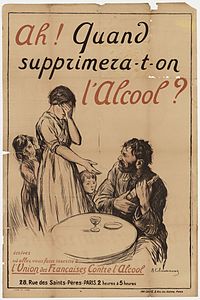
Photo from wikipedia
HighlightsEveningness, a preference for later sleep timing, is linked to altered reward function.Eveningness is also linked to substance use.We examined eveningness and reward‐related brain function longitudinally.Eveningness at age 20 predicated… Click to show full abstract
HighlightsEveningness, a preference for later sleep timing, is linked to altered reward function.Eveningness is also linked to substance use.We examined eveningness and reward‐related brain function longitudinally.Eveningness at age 20 predicated reward‐related brain function at age 22.Eveningness had an indirect effect on alcohol dependence via reward response. Abstract Eveningness, a preference for later sleep–wake timing, is linked to altered reward function, which may explain a consistent association with substance abuse. Notably, the extant literature rests largely on cross‐sectional data, yet both eveningness and reward function show developmental changes. We examined whether circadian preference during late adolescence predicted the neural response to reward 2 years later. A sample of 93 males reported circadian preference and completed a monetary reward fMRI paradigm at ages 20 and 22. Primary analyses examined longitudinal paths from circadian preference to medial prefrontal cortex (mPFC) and ventral striatal (VS) reward responses. We also explored whether reward responses mediated longitudinal associations between circadian preference and alcohol dependence, frequency of alcohol use, and/or frequency of cannabis use. Age 20 eveningness was positively associated with age 22 mPFC and VS responses to win, but not associated with age 22 reactivity to reward anticipation. Age 20 eveningness was indirectly related to age 22 alcohol dependence via age 22 mPFC response to win. Our findings provide novel evidence that altered reward‐related brain function could underlie associations between eveningness and alcohol use problems. Eveningness may be an under‐recognized but modifiable risk factor for reward‐related problems such as mood and substance use disorders.
Journal Title: Behavioural Brain Research
Year Published: 2017
Link to full text (if available)
Share on Social Media: Sign Up to like & get
recommendations!